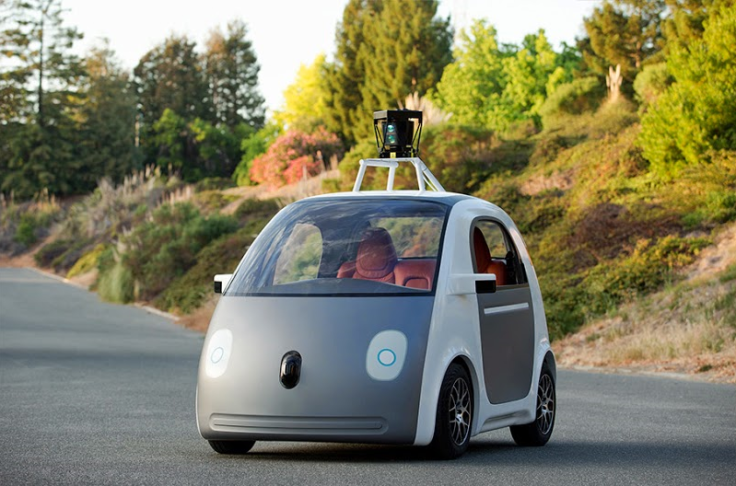Google Reveals Self-Driving Car Without Steering Wheel Or Pedals

By the end of this summer, Google will be looking for test drivers -- or test passengers, really -- for the latest project from the Google X lab: a new vehicle that is driven entirely by a computer and sensors. At the Code conference in Southern California on Tuesday, Google Inc. (NASDAQ:GOOG) co-founder Sergey Brin talked about the lab's plans to build about 100 of these test vehicles over the summer and get them on the road in certain cities within a few years.
Until now the project had involved retrofitting Toyota and Lexus vehicles with the technology to control them with a computer, but these new, two-seated prototypes that look like a Little Tykes Cozy Coupe don’t even have a steering wheel or pedals. Google thinks of them as "robo-taxis" that can be summoned with a mobile app.
If the prototypes are successful, Google hopes to start a pilot program in California, where the state last week revealed plans to start giving licenses to self-driving cars.
At Disrupt NY earlier this month, Dr. Astro Teller, the director of Google X, said the self-driving car project is designed to address the problem of car-related deaths in the U.S. About 33,000 Americans die in auto accidents every year, and Google believes that cars can be safer if driven by computers that can detect and react much faster than humans.
In April, the Google self-driving cars passed 700,000 miles driven without an accident. These new cars are designed to eliminate blind sports and detect objects that are more than 200 miles away in all directions.
“The reason I’m super-excited about these prototypes is the ability to change the world and the community around you,” Brin said.
Beyond just making the roads safer, Google believes the self-driving cars will help people with disabilities that prevent them from driving.
“Just imagine: You can take a trip downtown at lunchtime without a 20-minute buffer to find parking,” Chris Urmson, the director of the self-driving car project, said on the Google blog. “Seniors can keep their freedom even if they can’t keep their car keys. And drunk and distracted driving? History.”
Google hasn’t indicated when the cars might be commercially available.
© Copyright IBTimes 2025. All rights reserved.






















